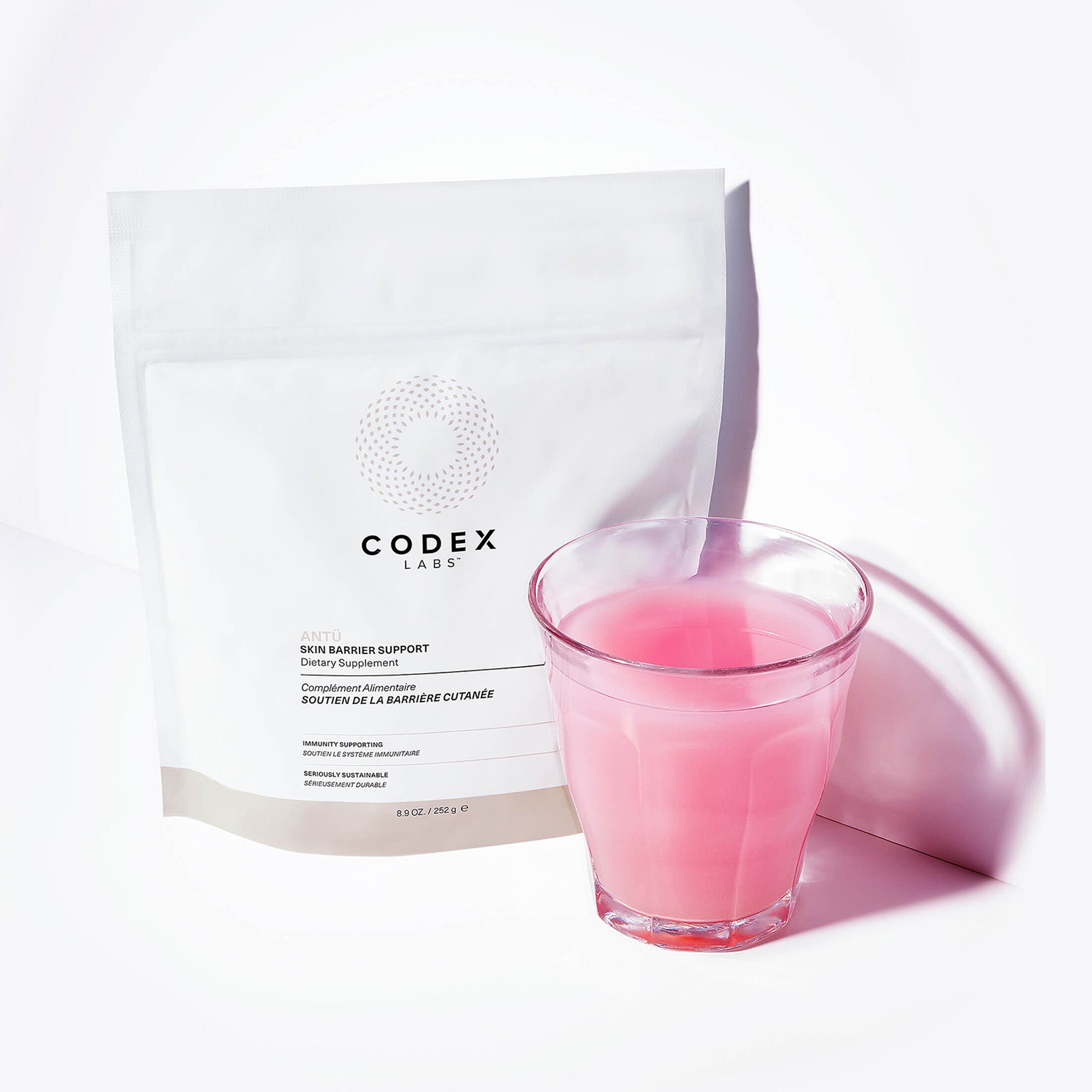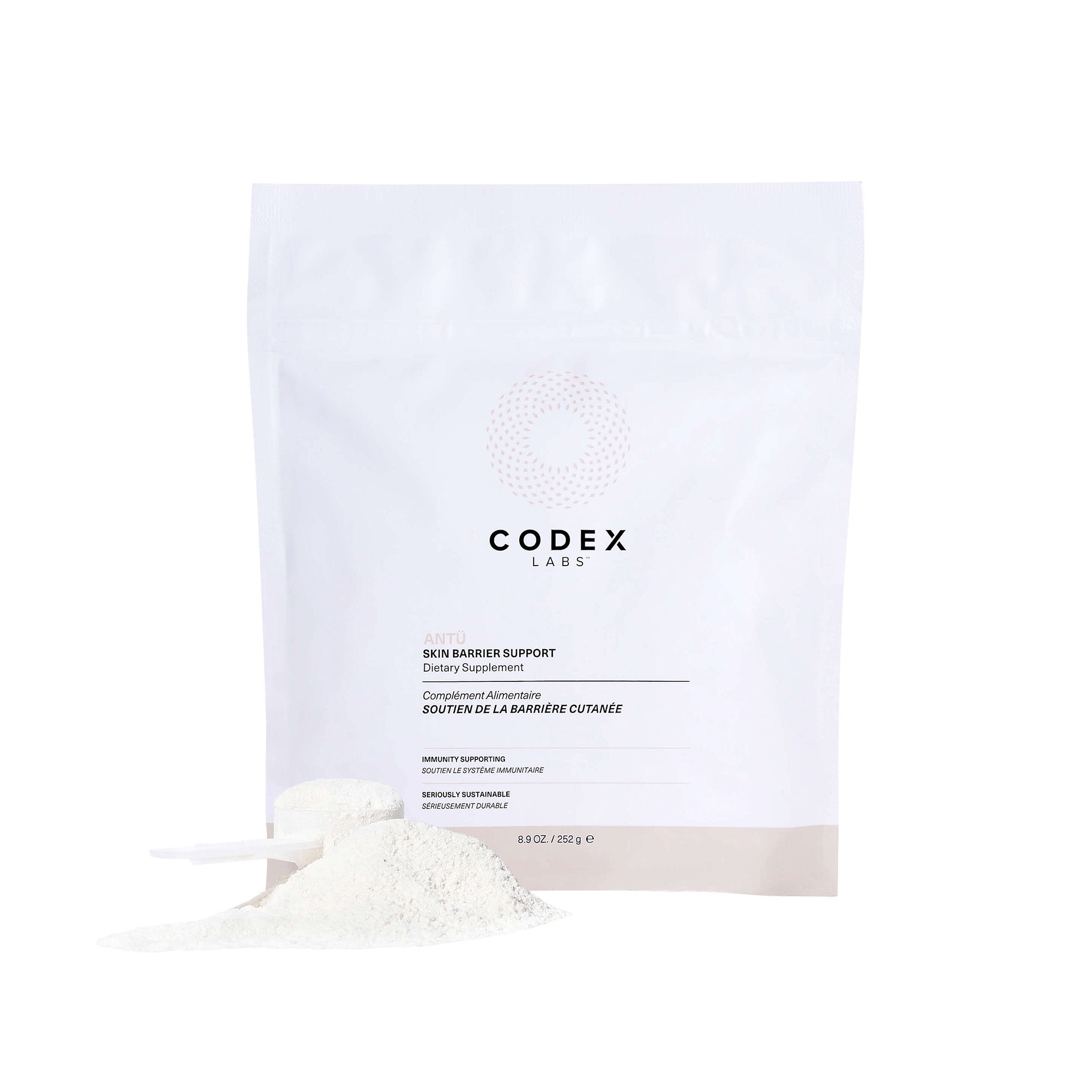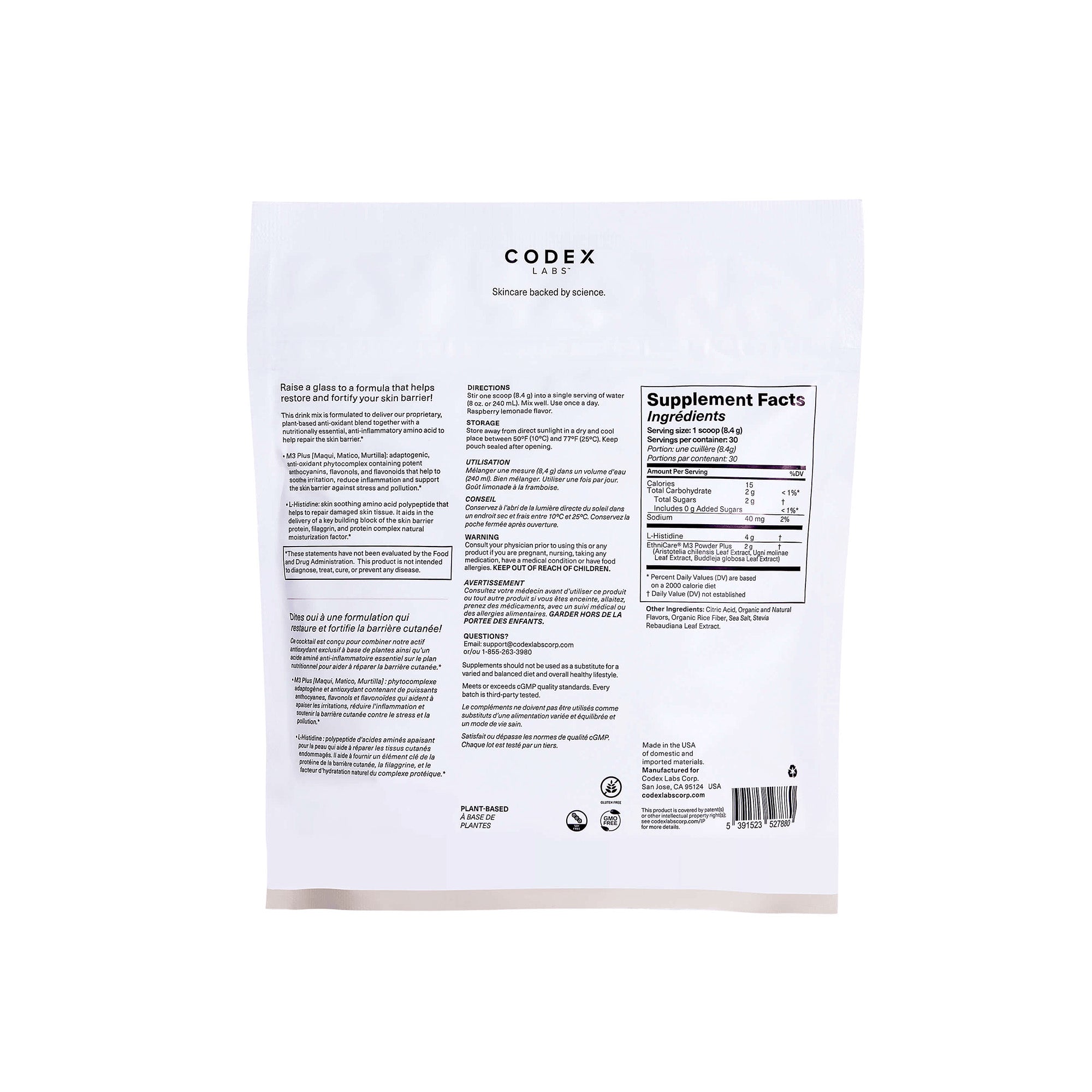Introduction [1]
We've all heard the phrase "beauty sleep," but have you ever wondered if there's any truth to it? Turns out the connection between sleep and skin health is more than just an old wives' tale, but rather, a concept based in science. In this blog article we will delve into the curious link between sleep and skin health to show why getting quality sleep on a consistent basis is important for maintaining healthy, radiant skin.
From combating signs of aging to preventing breakouts, proper sleep plays a vital role in our skin's overall health and appearance. We'll explore the causes of sleep-related skin issues, discuss treatment options, and provide prevention strategies to help you wake up looking refreshed and rejuvenated.

What is Beauty Sleep? [2]
The term “beauty sleep” refers to the biological restorative processes that occur in our bodies while we sleep, particularly those that benefit our skin. When we experience deep sleep stages, our bodies naturally increase blood flow to the skin to facilitate both better nutrient delivery and toxin removal. This process is crucial for skin cell regeneration, collagen production, and overall skin health, especially for those in their late 20s and beyond based on the fact that skin’s ability to repair itself diminishes as we age.
Several factors contribute to the importance of beauty sleep including:
- Hormone regulation: Sleep helps balance hormones that affect skin health, including cortisol (the stress hormone) and the body’s growth hormone (which aids in tissue repair). Specifically, the human body secretes growth hormones at the beginning of the sleep cycle which helps skin retain thickness and integrity.
- Cellular renewal: During sleep, skin cells divide more rapidly, replacing older cells with fresh ones, a biological process known as cell mitosis (cell division) which science has shown peaks between the hours of 9PM - midnight.
- Moisture balance: The importance associated with using a nighttime moisturizer is because skin temperature increases while we sleep, resulting in increased permeability of the skin barrier and accelerated water loss during the night.
- Stress reduction: Lastly, quality sleep helps to reduce overall stress levels, which can have a positive impact on skin conditions like acne, rosacea and eczema.
Understanding the biological processes associated with beauty sleep represents the first step in recognizing its importance when it comes to maintaining healthy, radiant skin.
Causes of Sleep-Related Skin Problems [3]
The relationship between lack of sleep and skin problems is complex and multifaceted. That being said, several factors contribute to how poor quality sleep can negatively impact our skin:
- Increased cortisol levels: When we don't get enough sleep, our bodies produce more of the stress hormone cortisol which can trigger inflammation in the body and exacerbate existing skin conditions like eczema and acne. It can also lead to premature aging triggered by a breakdown of collagen.
- Impaired skin barrier function: Sleep plays a crucial role in maintaining skin barrier health and function. A lack of sleep can deteriorate the skin barrier, making our skin more susceptible to environmental stressors (UV rays and pollution), dehydration (water loss), and infections.
- Reduced production of growth hormone: The body’s growth hormone, which is primarily released during deep sleep, is essential for tissue repair and cell regeneration. Insufficient sleep, however, can lead to decreased production of this hormone thereby slowing down the skin's natural repair processes.
- Disrupted circadian rhythm: Our skin, like the rest of our body, operates on a circadian rhythm. Irregular sleep patterns can disrupt this rhythm, affecting the timing of cellular renewal and potentially leading to skin issues.
- Decreased blood flow: During sleep, blood flow to the skin increases. When we don't get enough rest, this process becomes impaired, potentially leading to a dull complexion and slower healing of damaged skin.
- Dehydration: Sleep helps to regulate the body’s fluid balance. Lack of adequate sleep can cause skin dehydration making skin dry, flaky, and appear to have more visible fine lines.
- Increased oxidative stress: Sleep deprivation can increase oxidative stress in the body, leading to the production of free radicals that damage skin cells and accelerate aging.
- Inflammation: Chronic sleep deprivation has been linked to increased inflammation throughout the body, skin included. This can worsen conditions like acne, eczema, and psoriasis.
Understanding these factors helps explain questions like "does lack of sleep cause acne?". While the lack of sleep doesn't directly cause acne (biologically speaking), it can create conditions that make acne more likely to occur (inflammation) and/or worsen existing breakouts.
Symptoms and Identification [4]
Recognizing the physical signs of sleep deprivation on your skin can help you proactively address the issue before it becomes more problematic. Some common visible symptoms associated with a lack of sleep include:
- Dark circles and puffy eyes: One of the most noticeable signs of sleep deprivation is the appearance of dark circles and puffiness around the eyes.
- Dull, lackluster skin: Without adequate sleep, skin can appear dull and lifeless due to decreased blood flow and cellular turnover.
- Increased fine lines and wrinkles: Lack of sleep can accelerate the aging process resulting in fine lines and wrinkles being more prominent.
- Dryness and flakiness: Sleep-deprived skin often appears dry and flaky due to a decrease in moisture retention.
- Increased sensitivity: Your skin may also become more sensitive to products and/or environmental factors when you're not getting enough sleep.
- Slower healing: Cuts, scrapes, or acne lesions may take longer to heal.
- More frequent breakouts: Once again, for those wondering, "can lack of sleep cause acne?" the answer is that while it's not a direct cause, sleep deprivation can contribute to increased breakouts due to heightened stress and inflammation.
- Uneven skin tone: You might notice more redness or an overall uneven complexion when you're not getting enough rest.
- Sagging skin: Over time, chronic sleep deprivation can lead to a loss of skin elasticity, resulting in sagging.
- More pronounced under-eye bags: Lack of sleep can make under-eye bags appear larger due to fluid retention and decreased circulation.
It should be noted, however, that these symptoms can also be caused by other factors such as diet, stress and anxiety, or certain skin conditions. That said, if you believe you’re noticing a correlation between poor sleep and these types of skin manifestations, it might be time to seriously prioritize your sleep routine.
Treatment Options
Addressing sleep-related skin issues requires a two-pronged approach: improving sleep quality and implementing targeted skincare strategies. Examples of treatment options to consider include:
- Establish a consistent sleep routine: Try going to bed and waking up at the same time, targeting 7-9 hours of sleep per night, to regulate your circadian rhythm.
- Create a sleep-friendly environment: Ensure your bedroom is dark, quiet, and cool. Consider using blackout curtains or a white noise machine if needed.
- Develop a relaxing bedtime routine: Engage in calming activities before bed like reading, gentle stretching, or meditation.
- Limit screen time before bed: The blue light emitted by electronic devices can interfere with your sleep cycle. Try to avoid looking at these for at least an hour before bedtime.
- Use nighttime-specific skincare products: Look for night creams or serums containing ingredients like retinol, hyaluronic acid, or peptides, which can support skin repair while you sleep.
- Stay hydrated: Drink plenty of water throughout the day to support your skin's hydration levels.
- Consider supplements: Some supplements, like melatonin or magnesium, can help improve sleep quality. In addition, for those time when adequate, consistent sleep is at a premium, our scientifically formulated ANTU® SKIN BARRIER SUPPORT SUPPLEMENT and SHAANT® SKIN DE-STRESS DIETARY SUPPLEMENT can help restore your skin barrier and manage skin inflammation from inside your body.
- Manage stress: Practice stress-reduction techniques like deep breathing, yoga, or journaling to help improve sleep quality and skin health.
- Invest in quality bedding: A quality mattress coupled with silk or satin pillowcases can reduce friction on your skin while you sleep.
- Address underlying sleep disorders: If you suspect you have a sleep disorder like insomnia or sleep apnea, consult a healthcare professional for proper diagnosis and treatment.
- Exercise: It has been firmly established, with solid evidence, that exercise helps a person fall asleep faster and improves the quality of their sleep.
Remember, consistency is key when it comes to both sleep and skincare. It may take some time to see improvements, so be patient and stick to your routine.
Myths and Facts
There are many myths surrounding sleep and skin health. Let's debunk some common misconceptions and highlight the facts:
Myth 1: You can "catch up" on lost sleep over the weekend. Fact: While extra sleep can help you feel more rested, it doesn't fully compensate for chronic sleep deprivation. Consistency in your sleep schedule is key for skin health.
Myth 2: Everyone needs exactly 8 hours of sleep. Fact: Sleep needs vary from person to person. While most adults need 7-9 hours, some may need more or less to feel fully rested.
Myth 3: Alcohol helps you sleep better. Fact: While alcohol may help you fall asleep faster, it disrupts sleep quality, leading to less restful sleep and potentially worse skin.
Myth 4: You can train your body to need less sleep. Fact: Chronically depriving yourself of sleep can have serious health consequences, including negative effects on your skin.
Myth 5: Sleeping in makeup occasionally won't harm your skin. Fact: Even one night of sleeping in makeup can clog pores and lead to breakouts. Always remove makeup before bed.
Myth 6: Dark circles are always caused by lack of sleep. Fact: While lack of sleep can contribute to dark circles, they can also be caused by genetics, allergies, or dehydration.
Myth 7: You can't change your sleep habits. Fact: With consistent effort and good sleep hygiene practices, most people can improve their sleep quality and duration.
Myth 8: Naps make up for poor nighttime sleep. Fact: While short naps can be refreshing, they don't provide the same benefits as a full night's sleep, especially for skin health.
By understanding these facts, you can make more informed decisions about your sleep habits and their impact on your skin health.
FAQ
- Q: What are the effects of sleep on beauty?
A: Sleep has numerous positive effects on beauty, including increased skin cell regeneration, improved skin hydration, reduced inflammation, and enhanced collagen production, all of which contribute to a more youthful and radiant appearance. - Q: Does lack of sleep age you faster?
A: Yes, chronic sleep deprivation can accelerate the aging process. It can lead to increased production of stress hormones, decreased collagen production, and impaired skin barrier function, all of which can contribute to premature aging. - Q: Why is sleep important for beauty?
A: Sleep is crucial for beauty because it's when our body, including our skin, goes into repair and regeneration mode. During sleep, blood flow to the skin increases, collagen is produced, and cell turnover is accelerated, all contributing to healthier, more youthful-looking skin. - Q: How does sleep affect skin health?
A: Sleep affects skin health in multiple ways. It helps regulate hormones that impact skin, increases blood flow to the skin, aids in cellular repair and renewal, and helps maintain the skin's moisture balance. Good sleep also reduces stress, which can have a positive impact on various skin conditions. - Q: Do you think it is important to get your beauty sleep?
A: Absolutely! "Beauty sleep" is more than just a saying – it's a crucial component of skin health and overall well-being. Prioritizing good sleep can lead to noticeable improvements in skin appearance and can help prevent premature aging.
Conclusion
The connection between sleep and skin health is undeniable. From reducing the appearance of fine lines to preventing breakouts, getting enough quality sleep is a powerful tool in your skincare arsenal. By understanding the importance of sleep for skin health and implementing the strategies discussed in this article, you can wake up to healthier, more radiant skin.
So, the next time you're tempted to skimp on sleep, remember that those extra hours of rest aren't just refreshing your mind, they're rejuvenating your skin too. Here's to sweet dreams and glowing skin!
Call to Action
When it comes to addressing the symptoms associated with a lack of consistent, quality sleep, our team of scientific experts have developed clinically proven products that address both the skin barrier and skin inflammation. Our patented, clinically-proven ANTU® OVERNIGHT REPAIR CREAM contains potent antioxidants (M3™) + hyaluronic acid + Mother Nature’s retinol (black jack) nourishes and rejuvenates your skin while you sleep. And for those looking to maximize skin barrier healing and support from inside their body, there is our ANTU® SKIN BARRIER SUPPORT SUPPLEMENT, containing our proprietary M3+™ antioxidant in combination with L-histidine, an amino acid that has been clinically shown to support skin barrier strength and moisture retention. This one-two, inside-out approach to skin barrier health and inflammation management is just what your sleep deprived skin has been craving!
References
- How Sleep Affects The Skin - Art of Dermatology | New York
- https://www.healthline.com/health/beauty-skin-care/beauty-sleep#:~:text=This%20is%20true%20for%20your,reducing%20wrinkles%20and%20age%20spots.
- https://onlinelibrary.wiley.com/doi/10.1111/ddg.14992#:~:text=The%20release%20of%20inflammatory%20cytokines,are%20aggravated%20under%20these%20conditions.
- https://www.ncbi.nlm.nih.gov/pmc/articles/PMC3738045/





